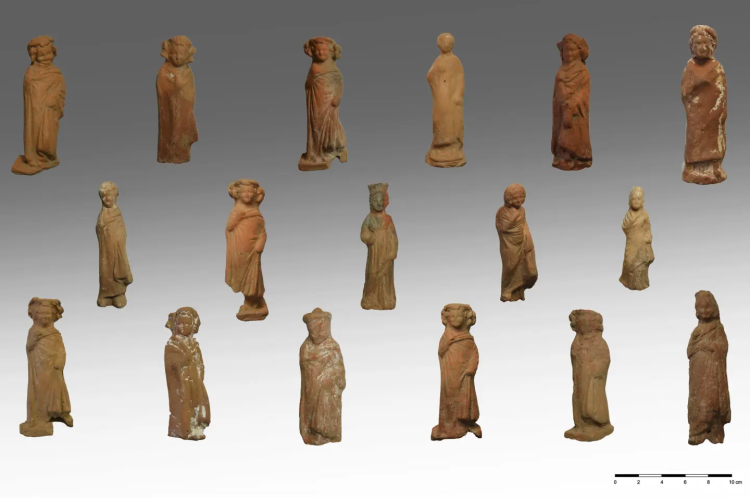The Culture Ministry of Greece announced on Wednesday that archaeologists have made significant discoveries at a hilltop sanctuary on the island of Kythnos in the Aegean Sea. The excavations have revealed a vast number of pottery offerings that were left by worshippers throughout the centuries.
According to a statement from the ministry, this year’s findings include over 2,000 intact or nearly complete clay figurines. The majority of these figurines depict women and children, although there are also representations of male actors, as well as animals such as tortoises, lions, pigs, and birds.
Among the unearthed artifacts are several ceremonial pottery vessels, which have been connected to the worship of Demeter, the ancient Greek goddess of agriculture, and her daughter Persephone. The sanctuary complex that was excavated was dedicated to these deities.
Archaeological excavations on the island of Kythnos, specifically at the coastal site of Vryokastro, have provided valuable insights into the island’s ancient history. Vryokastro served as the capital of Kythnos from the 12th century B.C. until the 7th century A.D., when it was abandoned due to frequent pirate raids. The recent findings shed light on the religious practices and cultural connections of the island’s inhabitants.
The artifacts discovered originate from the remains of two small temples, as well as a nearby structure that likely functioned as a temple storeroom. Additionally, a pit close by was used to bury older offerings, creating space for new ones. The sanctuary remained active for approximately one thousand years, commencing in the 7th century B.C.
The excavation, led by Greece’s University of Thessaly in collaboration with the Culture Ministry, uncovered imported luxury pottery from various regions of Greece. Intricate lamps and fragments of ritual vases associated with the worship of Demeter and Persephone at Eleusis, an ancient suburb of Athens, were also found. The extent of the connection between the Kythnos site and Eleusis, one of the most significant religious centers in ancient Greece, remains uncertain. The worship of Demeter and Persephone at Eleusis involved secret rites exclusively accessible to initiates who were prohibited from discussing their experiences. It is known that the sanctuary at Eleusis owned land on Kythnos.
Kythnos, part of the Cyclades island group, has a history dating back approximately 10,000 years. The island was known for its copper deposits, which were mined as early as the 3rd millennium B.C. During the Roman period, Kythnos served as a place of political exile.
The excavation efforts are scheduled to continue until 2025, providing further opportunities to explore the rich history of Kythnos and deepen our understanding of ancient Greek civilization.









